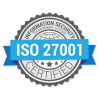In recent years, the role of procurement professionals has undergone a significant transformation. No longer confined to the back office, today’s procurement specialists are at the forefront of strategic decision-making within their organizations.
This shift from tactical buyers to strategic advisors marks a pivotal evolution, one that is reshaping how businesses approach procurement and supply chain management.
The Traditional Role of Procurement
Historically, procurement was primarily seen as a cost-saving function. The main responsibilities of procurement professionals were to source goods and services at the lowest possible cost, manage supplier relationships, and ensure timely delivery of materials. This tactical approach focused on transaction processing, order placement, and compliance with established procurement policies.
While cost-saving remains an essential aspect, the scope of procurement has expanded significantly. According to a survey conducted by Deloitte in 2023[1], the vast majority of procurement leaders believe that their role is becoming more strategic within the organization. This statistic highlights the growing recognition of procurement’s potential to add value beyond mere cost reduction.
The Shift to Strategic Procurement
The transition from tactical to strategic procurement involves several key changes:
- Enhanced Data Analytics & AI use: Modern procurement professionals leverage data analytics to gain insights into spending patterns, supplier performance, and market trends. This data-driven approach allows for more informed decision-making, helping companies to optimize their procurement strategies. Gartner has been publishing many reports in the latest year emphasizing the transformative impact of AI and analytics on procurement processes, which enhance cost management and operational efficiency bringing significant cost reductions to organizations.
- Supplier Relationship Management: Building strong, collaborative relationships with suppliers is now a priority. Strategic procurement focuses on developing partnerships that drive innovation, improve quality, and enhance supply chain resilience. According to McKinsey, companies that collaborate closely with suppliers can achieve much higher levels of innovation[2].
- Risk Management: The COVID-19 pandemic underscored the importance of robust risk management in procurement. Strategic advisors proactively identify and mitigate risks, ensuring supply chain continuity and resilience. A survey by Ernst & Young found that the vast majority of procurement leaders are now prioritizing risk management as a critical function[3].
- Sustainability and Ethical Sourcing: As sustainability becomes a core business objective, procurement professionals are tasked with ensuring that their sourcing practices align with environmental and social responsibility standards. The EcoVadis 2021 Sustainable Procurement Barometer reported that 63% of procurement leaders have incorporated sustainability into their procurement strategies. This report highlights how sustainability commitments have grown significantly, emphasizing that a substantial portion of procurement leaders are now prioritizing sustainable practices to enhance supply chain resilience and corporate responsibility.
Skills and Competencies of the Modern Procurement Professional
The evolving role of procurement requires a new set of skills and competencies. Today’s procurement professionals need to be adept at:
- Strategic Thinking: Understanding the broader business context and aligning procurement strategies with organizational goals.
- Analytics Skills: Utilizing data analytics tools to derive actionable insights from complex data sets.
- Negotiation and Communication: Building and maintaining effective relationships with suppliers and internal stakeholders.
- Change Management: Leading and managing change within the procurement function and across the organization.
A study by the Hackett Group[4] found that top-performing procurement organizations have a higher proportion of staff with advanced analytical and strategic skills compared to their peers. This finding underscores the importance of continuous professional development and training in the procurement field.
The Future of Procurement
Looking ahead, the role of procurement is set to become even more integral to business success. Several trends are likely to shape the future of procurement:
- Digital Transformation: The adoption of technologies such as artificial intelligence, blockchain, and the Internet of Things (IoT) will continue to revolutionize procurement processes. These technologies offer opportunities for increased efficiency, transparency, and innovation.
- Talent Management: As the demand for strategic procurement skills grows, attracting and retaining top talent will be crucial. Organizations will need to invest in training and development programs to equip their procurement teams with the necessary skills.
- Globalization and Localization: Balancing the benefits of global sourcing with the need for local supply chain resilience will be a key challenge. Procurement professionals will need to navigate complex geopolitical landscapes and adapt their strategies accordingly.
- Sustainability and ESG goals: Environmental, Social, and Governance (ESG) criteria will play a more prominent role in procurement decisions. Companies will be expected to demonstrate their commitment to sustainable and ethical sourcing practices.
The evolution of procurement from a tactical function to a strategic advisory role is a testament to the growing recognition of its value within organizations. When they embrace data analytics, foster strong supplier relationships, and prioritize risk management and sustainability, procurement professionals can drive significant business outcomes to their organizations.
As the role continues to evolve, procurement leaders must remain agile, continuously updating their skills and strategies to meet the demands of a dynamic business environment. The future of procurement is bright, with opportunities to contribute to innovation, sustainability, and overall organizational success.
Ready to enact some change? Thinking Machine can help with a lot of the topics mentioned above, from taking advantage of enhanced analytics to leveraging the power of AI to supercharge your strategic decisions. If you’re ready to take action and take advantage of the full potential of your procurement data — we invite you to book a strategy call with us.
Let’s discuss how Thinking Machine can provide the insights and efficiencies you’ve been seeking. It’s time to turn data into one of your most strategic assets and allow the advanced analytics of our platform to reveal opportunities that have been hidden in plain sight.
To start your journey with Thinking Machine, please reach out to us at sales@thinkingmachine.co. Together, we can build a legacy of efficiency, savings, and strategic success in your procurement operations.
[1] us-2023-global-chief-procurement-officer-survey.pdf (deloitte.com)
[2] mck-taking-supplier-collaboration-to-the-next-level.pdf (mckinsey.com)
[3] How COVID-19 impacted supply chains and what comes next | EY – Global
[4] 2023 Procurement Key Issues Research – The Hackett Group


